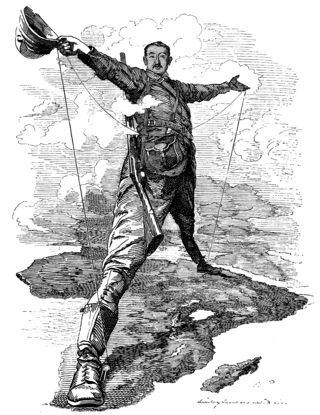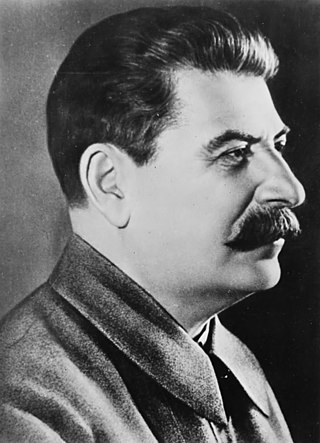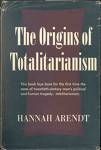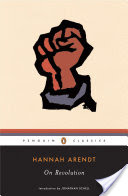Related Research Articles

Cultural imperialism comprises the cultural dimensions of imperialism. The word "imperialism" describes practices in which a country engages culture to create and maintain unequal social and economic relationships among social groups. Cultural imperialism often uses wealth, media power and violence to implement the system of cultural hegemony that legitimizes imperialism.

Colonialism is the pursuing, establishing and maintaining of control and exploitation of people and of resources by a foreign group of people. Implemented through the establishment of coloniality and possibly colonies, this colonization keeps colonized territory and people socio-economically othered and subaltern to colonizers and their metropole. While frequently advanced as an imperialist regime, colonialism can also take the form of settler colonialism, whereby colonial settlers invade and occupy territory to permanently replace an existing society with that of the colonizers, possibly towards a genocide of native populations.

Imperialism is the practice, theory or attitude of maintaining or extending power over foreign nations, particularly through expansionism, employing both hard power and soft power. Imperialism focuses on establishing or maintaining hegemony and a more or less formal empire. While related to the concepts of colonialism, imperialism is a distinct concept that can apply to other forms of expansion and many forms of government.

Totalitarianism is a political system and a form of government that prohibits opposition political parties, disregards and outlaws the political claims of individual and group opposition to the state, and controls the public sphere and the private sphere of society. In the field of political science, totalitarianism is the extreme form of authoritarianism, wherein all socio-political power is held by a dictator, who also controls the national politics and the peoples of the nation with continual propaganda campaigns that are broadcast by state-controlled and by friendly private mass communications media.
Colonization is a process of establishing control over foreign territories or peoples for the purpose of exploitation and possibly settlement, setting up coloniality and often colonies, commonly pursued and maintained by colonialism.

Hannah Arendt was a German-American historian and philosopher. She was one of the most influential political theorists of the 20th century.

The Scramble for Africa was the invasion and colonisation of most of Africa by seven Western European powers during the era of "New Imperialism" (1833–1914). In 1870, 10% of the continent was formally under European control. By 1914, this figure had risen to almost 90%, with only Liberia and Ethiopia retaining their full sovereignty.
Decolonization is the undoing of colonialism, the latter being the process whereby imperial nations establish and dominate foreign territories, often overseas. The meanings and applications of the term are disputed. Some scholars of decolonization focus especially on independence movements in the colonies and the collapse of global colonial empires. Other scholars extend the meaning to include economic, cultural and psychological aspects of the colonial experience.

The Origins of Totalitarianism, published in 1951, was Hannah Arendt's first major work, where she describes and analyzes Nazism and Stalinism as the major totalitarian political movements of the first half of the 20th century.

Western European colonialism and colonization is the policy or practice of acquiring full or partial political control over other societies and territories, founding a colony, occupying it with settlers, and exploiting it economically. For example, colonial policies, such as the type of rule implemented, the nature of investments, and identity of the colonizers, are cited as impacting postcolonial states. Examination of the state-building process, economic development, and cultural norms and mores shows the direct and indirect consequences of colonialism on the postcolonial states.

The historical phenomenon of colonization is one that stretches around the globe and across time. Ancient and medieval colonialism was practiced by the Phoenicians, Greeks, Romans, Turks, Han Chinese, and Arabs.

Expansionism refers to states obtaining greater territory through military empire-building or colonialism.
Postcolonialism is the critical academic study of the cultural, political and economic legacy of colonialism and imperialism, focusing on the impact of human control and exploitation of colonized people and their lands. The field started to emerge in the 1960s, as scholars from previously colonized countries began publishing on the lingering effects of colonialism, developing a critical theory analysis of the history, culture, literature, and discourse of imperial power.

Postcolonial international relations is a branch of scholarship that approaches the study of international relations (IR) using the critical lens of postcolonialism. This critique of IR theory suggests that mainstream IR scholarship does not adequately address the impacts of colonialism and imperialism on current day world politics. Despite using the language of post-, scholars of postcolonial IR argue that the legacies of colonialism are ongoing, and that critiquing international relations with this lens allows scholars to contextualize global events. By bridging postcolonialism and international relations, scholars point to the process of globalization as a crucial point in both fields, due to the increases in global interactions and integration. Postcolonial IR focuses on the re-narrativization of global politics to create a balanced transnational understanding of colonial histories, and attempts to tie non-Western sources of thought into political praxis.
The coloniality of power is a concept interrelating the practices and legacies of European colonialism in social orders and forms of knowledge, advanced in postcolonial studies, decoloniality, and Latin American subaltern studies, most prominently by Anibal Quijano. It identifies and describes the living legacy of colonialism in contemporary societies in the form of social discrimination that outlived formal colonialism and became integrated in succeeding social orders. The concept identifies the racial, political and social hierarchical orders imposed by European colonialism in Latin America that prescribed value to certain peoples/societies while disenfranchising others.

Settler colonialism occurs when colonizers invade and occupy territory to permanently replace the existing society with the society of the colonizers.

Imperialism, the Highest Stage of Capitalism, originally published as Imperialism, the Newest Stage of Capitalism, is a book written by Vladimir Lenin in 1916 and published in 1917. It describes the formation of oligopoly, by the interlacing of bank and industrial capital, in order to create a financial oligarchy, and explains the function of financial capital in generating profits from the exploitation colonialism inherent to imperialism, as the final stage of capitalism. The essay synthesises Lenin's developments of Karl Marx's theories of political economy in Das Kapital (1867).

Anti-imperialism in political science and international relations is opposition to imperialism or neocolonialism. Anti-imperialist sentiment typically manifests as a political principle in independence struggles against intervention or influence from a global superpower, as well as in opposition to colonial rule. Anti-imperialism can also arise from a specific economic theory, such as in the Leninist interpretation of imperialism, which is derived from Lenin's 1917 work Imperialism, the Highest Stage of Capitalism. People who categorize themselves as anti-imperialists often state that they are opposed to colonialism, colonial empires, hegemony, imperialism and the territorial expansion of a country beyond its established borders.

On Revolution is a 1963 book by the political theorist Hannah Arendt, who presents a comparison of two of the main 18th-century revolutions: the American Revolution and the French Revolution.

Russian imperialism includes the policy and ideology of power exerted by Russia, as well as its antecedent states, over other countries and external territories. This includes the conquests of the Russian Empire, the imperial actions of the Soviet Union, as well as those of the modern Russian Federation. Some postcolonial scholars have noted the lack of attention given to Russian and Soviet imperialism in the discipline.
References
- ↑ King, Richard H.; Stone, Dan (September 2008). Hannah Arendt and the Uses of History: Imperialism, Nation, Race, and Genocide. Berghahn Books. ISBN 9781845455897.
- ↑ Owens, Patricia (30 August 2007). Between War and Politics: International Relations and the Thought of Hannah Arendt. ISBN 9780199299362.
- ↑ Rothberg, Michael (15 June 2009). Multidirectional Memory: Remembering the Holocaust in the Age of Decolonization. ISBN 9780804762175.
- 1 2 Woodman, Connor (2020). "The Imperial Boomerang: How colonial methods of repression migrate back to the metropolis". Versobooks.com.
- ↑ Etkind, Alexander (2011). Internal colonization: Russia's imperial experience. John Wiley & Sons. ISBN 9780745673547.
- ↑ Graham, Stephen (2013). "Foucault's boomerang: the new military urbanism". openDemocracy.
- ↑ Graham, Stephen (2011). Cities Under Siege: The New Military Urbanism.
- ↑ Go, Julian (July 16, 2020). "The Racist Origins of U.S. Policing". Foreign Affairs .
- ↑ Morefield, Jeanne (2020). "Beyond Boomerang". International Politics Reviews. 8: 3–10. doi: 10.1057/s41312-020-00078-7 . S2CID 220962507.
- ↑ Schrader, Stuart (2020). "Defund the Global Policeman". n+1.
- ↑ McCoy, Alfred W. (2009). Policing America's Empire: The United States, the Philippines, and the Rise of the Surveillance State.
{{cite book}}:|website=ignored (help) - ↑ Makalintal, Joshua M. (2021). "Dismantling the Imperial Boomerang: A Reckoning with Globalised Police Power". Transnational Institute.